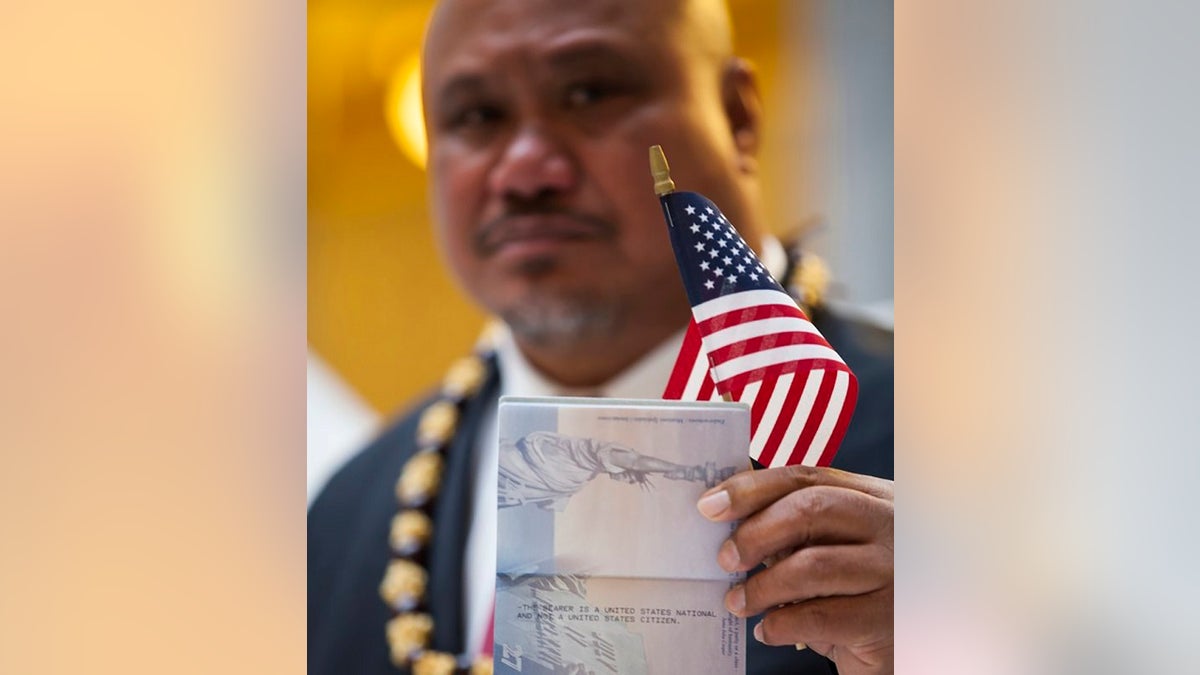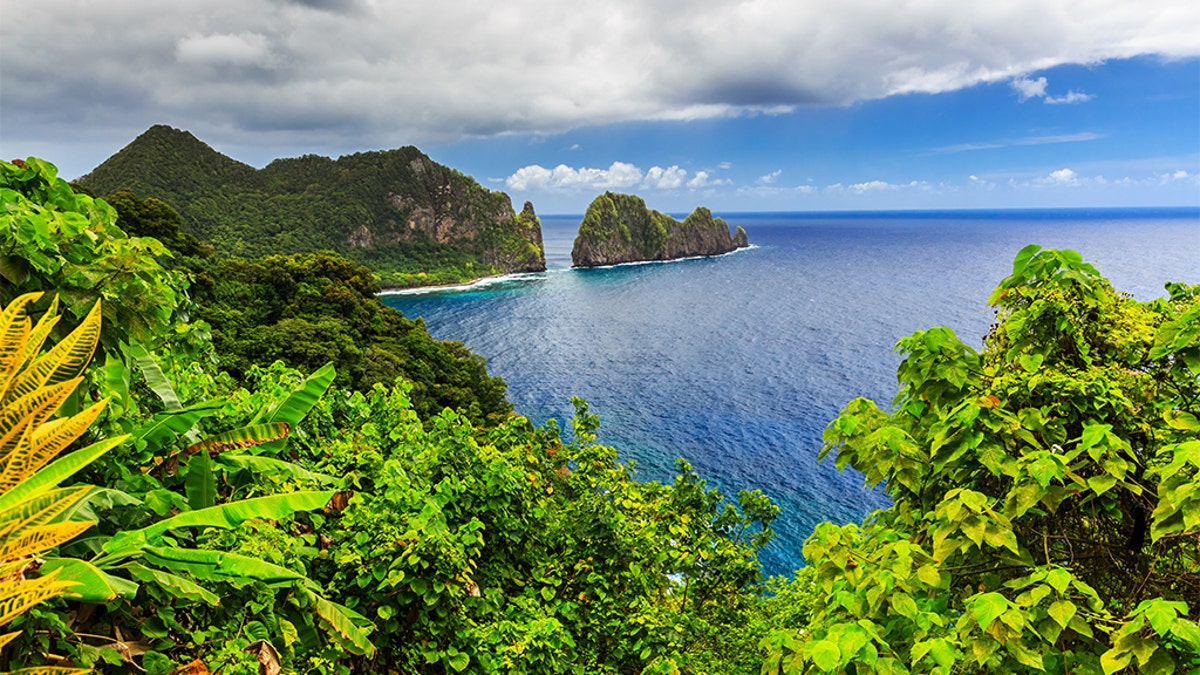Fox News Flash top headlines for Dec. 12
Fox News Flash top headlines for Dec. 12 are here. Check out what's clicking on Foxnews.com
People born in the U.S. territory of American Samoa should be recognized as U.S. citizens, a federal judge in Utah ruled Thursday, in a hard-fought legal battle spanning decades.
U.S. District Judge Clark Waddoups also ruled that American Samoans should be issued new passports reflecting his ruling. The disclaimer on their passports currently reads: "The bearer is a United States national and not a United States citizen."
"This court is not imposing 'citizenship by judicial fiat,'" Waddoups said in his decision. "The action is required by the mandate of the Fourteenth Amendment as construed and applied by Supreme Court precedent."
American citizens are defined as people "born or naturalized in the United States, and subject to the jurisdiction thereof, are citizens of the United States and of the state wherein they reside."

In this undated file image provided by nonprofit advocacy and legal group Equally American, John Fitisemanu, an American Samoan and the lead plaintiff in a lawsuit against the United States seeking full U.S. citizenship. People born in the territory of American Samoa should be recognized as U.S. citizens, a federal judge in Utah decided Thursday in a case filed amid more than a century of legal limbo but whose eventual impact remains to be seen. (Katrina Keil Youd/Equally American via AP)
American Samoa became a U.S. territory in 1900, but those born there are only recognized as U.S. nationals, preventing them from being able to vote, run for public office or sponsor family members for immigration to the U.S.
Its status separates itself from other U.S. territories such as Puerto Rico, Guam, the Northern Marianas and the U.S. Virgin Islands.
In 2016, the Supreme Court declined to hear a case from the U.S. Court of Appeals for the District of Columbia Circuit that ruled the Constitution doesn't confer citizenship to those born in American Samoa.
The lawsuit was brought last year by three people -- John Fitisemanu, Pale Tuli and Rosavita Tuli -- who were born on the cluster of islands southeast of Hawaii and currently reside in Utah. They claimed they faced restrictions from traveling abroad and were subject to fees that don't apply to American citizens.
It was not clear if Thursday's ruling applies outside of Utah. A State Department official told Fox News that the agency is reviewing the ruling along with the Justice Department.
“The takeaway from the ruling is that people born in American Samoa living in Utah are now U.S. citizens, and they have all the same rights as other Americans, including the right to vote,” said Neil Weare, president of Equally American and one of the attorneys representing the plaintiffs. “These individuals can now go and register to vote and participate in state, federal and local elections.”

Camel Rock near the village of Lauli'i in Pago Pago, American Samoa. A federal judge in Utah ruled Thursday that people born in American Samoa should be granted birthright citizenship.
American Samoans can apply for U.S. citizenship but have to pay the $725 application fee, in addition to any legal fees they incur to help them navigate the process.
Fitisemanu said his employment prospects have been diminished because of his rejection from jobs that specify U.S. citizenship as a requirement. In an interview with The Associated Press last year, he said he avoided political conversations because he couldn't vote.
CLICK HERE TO GET THE FOX NEWS APP
After the ruling, Fitisemanu said he plans to register to vote. The American Samoan government claims automatic U.S. citizenship would undermine local traditions and practices.
The Associated Press contributed to this report.













































